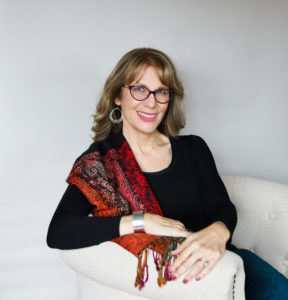 Carol Cosman’s first novel “Dissonance” is planned for publication in spring, 2021. The novel traces a young woman’s efforts to save her father from death in a Russian gulag. Carol holds a Bachelor’s Degree in Music and a Master’s Degree in Teaching. A former educator, she taught creative writing to children and teens.
Carol Cosman’s first novel “Dissonance” is planned for publication in spring, 2021. The novel traces a young woman’s efforts to save her father from death in a Russian gulag. Carol holds a Bachelor’s Degree in Music and a Master’s Degree in Teaching. A former educator, she taught creative writing to children and teens.
How did your writing of “Dissonance” begin?
I was working full time when I started going through some old family photos and documents that I had inherited on my mother’s side of the family. I became curious about my Russian immigrant ancestors and the lives they led. I wanted to blend my own experience with theirs.
What inspired your novel’s setting in 1970s Soviet Russia and Israel?
There were lots of discussions at my family’s kitchen table about human rights and world events that still resonate today. My uncle was a political cartoonist. I started doing a lot of research and was intrigued with what was going on in Russia and Israel in the 1970s. I was living and studying in Israel during that time, so I had a personal connection to it.
Your protagonist, Natalia, is a musician. Did you call on your own experience as a musician to propel the story?
I am not Natalia, who appears as an acclaimed pianist in Russia. Some of the things she goes through I relate to. I was interrupted once in the middle of a piano performance and never forgot having to leave the stage. I do use my experience as a musician to portray what it’s like to listen to and perform a piece of music. I understood what she was thinking and feeling.
How did you come up with the title “Dissonance”?
I was washing the dishes when the title came to me. The word dissonance means sounds or musical tones that aren’t in harmony. It can also be applied in life to mean the inconsistency between one’s actions and beliefs. The book starts with Natalia being removed from a music competition. This act serves as a backdrop for events that follow. The word dissonance also conjures the idea of dissidents, which the book explores.
What advice do you have for developing a unique voice in your characters?
You have to really know your characters. Where were they born? What motivates them? What events shaped their life? Bella is a supporting character who knows how to balance her working life in the Kremlin with her underground dissident life.
You’ve been working on the book for six years. What kept you going?
I got so involved with my characters that I felt I owed them something, which in my mind was a conclusion. I’d leave off at some cliffhanger so I’d have to return to it. I also wanted to put all the research I did into good use. I called and emailed experts, watched videos, read books, magazines, and newspapers. I returned to Israel after 40 years to visit some exhibits and archives from the period I was writing about. It kept me interested in continuing.
Why do you like participating in a critique style writer workshop such as Barrington Writers Workshop?
When I joined BWW, I was not as seasoned as some members and grew as a writer. I moved from my personal space to a shared space of writers. It was a big step for me. I developed my own style and appreciated all the feedback. I also got better at critiquing other writers’ work.
Tell us about the decisions you made as you readied to publish your book.
An important decision was to hire a professional editor to go through my manuscript. He had excellent suggestions that I incorporated in my book. I tried going the traditional publishing route meaning searching for an agent, who would find a publisher but as a first time author I felt my chances unlikely. Based on a recommendation from a BWW member, I looked into BookLocker and signed up through a discount promotion they were having. It was the right decision for me.
Your website has several unique components to it. Why did you include them?
My website, carolcosman.com, includes a soundtrack of music referred to in “Dissonance” for the reader to listen to. I have a bibliography for anyone who wants to learn more. There are also family photos and letters written in Russian that I had transcribed into English. It’s a way to engage the reader further in the story and the book.

Congratulations on finishing your novel, Carol! I loved what I read in the group and look forward to reading the entire novel. I particularly remember your passages related to music. They gave me a window into music like I haven’t had before and gave so much depth to the story. I also learned so much that I didn’t know before from that time period.
Thank you, June! It was my hope that my readings
for the group left an impression of the music, the settings, and that time period. I valued your comments and suggestions and look forward to you reading the whole story.